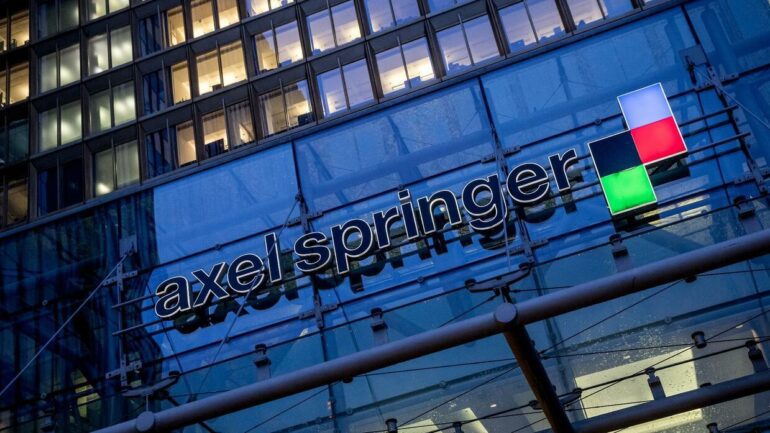TL;DR:
- OpenAI secured a significant agreement with Axel Springer, the owner of publications like Business Insider and Politico.
- The partnership allows OpenAI to use Axel Springer’s copyrighted content for its AI models, including ChatGPT.
- Users will receive summaries of select Axel Springer articles with proper attribution and links.
- Axel Springer will receive compensation from OpenAI, and the deal spans several years.
- Tensions continue to rise between publishers and AI vendors over copyright and traffic concerns.
- The media industry seeks transparency and copyright protection in AI, urging policymakers to act.
Main AI News:
OpenAI has taken a significant step in the realm of AI-powered journalism by securing a groundbreaking agreement with Axel Springer, the Berlin-based media conglomerate that owns prestigious publications such as Business Insider and Politico. This strategic partnership will enable OpenAI to utilize Axel Springer’s copyrighted content to enhance its generative AI models, including the viral ChatGPT.
This move follows OpenAI’s prior collaboration with The Associated Press, where it obtained licensing rights to tap into the rich archives of this renowned news organization for model training. With Axel Springer now in the fold, ChatGPT users can look forward to receiving informative summaries of “selected” articles from Axel Springer’s publications, even those typically hidden behind paywalls. These summaries will include proper attribution and direct links to the complete articles, ensuring transparency and credit where it’s due.
In exchange for granting access to its valuable content, Axel Springer will receive compensation from OpenAI. While the specifics of the financial arrangement remain confidential, the agreement is set to span multiple years. Importantly, it doesn’t lock either party into exclusivity, leaving room for further exploration and cooperation.
Mathias Döpfner, CEO of Axel Springer, expressed his enthusiasm for this pioneering collaboration, describing it as “the first of its kind.” He emphasized the shared vision of harnessing AI-empowered journalism to elevate quality, societal relevance, and the overall business model of journalism to new heights.
However, beyond these promising collaborations, tensions between publishers and generative AI vendors persist. Publishers have raised concerns about copyright infringement and the potential negative impact on their traffic as generative models like Google’s SGE continue to evolve. Many publishers insist on fair compensation agreements for training models using their content, especially as tech giants explore AI-powered news summarization tools.
In August, a coalition of media organizations and industry bodies published an open letter, advocating for more transparency and copyright protection in AI. They called for regulations that would require transparency in training datasets and enable media companies to negotiate with AI model operators. The letter highlighted that current practices not only infringe on copyright law but also erode the financial viability of media companies, reducing access to high-quality information for the public.
Conclusion:
OpenAI’s strategic partnership with Axel Springer represents a notable development in the AI journalism market. It showcases the potential for collaboration between AI developers and media conglomerates, providing valuable content while ensuring transparency and compensation. However, tensions surrounding copyright and traffic issues continue to challenge this burgeoning field, emphasizing the need for regulatory frameworks and fair practices to sustain innovation and media diversity.

